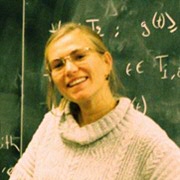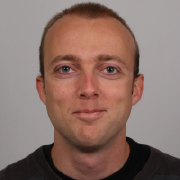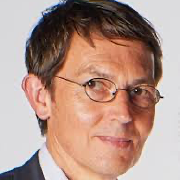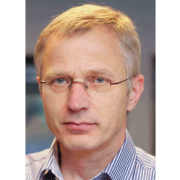Mathematics
The mathematics expertise present at the University of Groningen covers a broad spectrum (Statistics & Stochastics, Systems & Control, Computational Mathematics and Dynamical Systems). Mathematics is already closely connected to the computer sciences, for example at the systems and engineering level, through Systems & Control. Other contributions to the Centre involve the modelling of the large-scale behaviour of stochastic systems; control analysis of large-scale complex systems; and large-scale simulations and numerical analysis.
An overarching theme of the mathematics department is the analysis and control of dynamic systems. These systems can be autonomous or open to interaction with other systems. The subject involves a variety of mathematical theories ranging from analysis and algebra to geometry and measure theory. Statistical, stochastic and algebraic aspects of network dynamics also play an important role. Dynamic systems theory and systems and control theory are used throughout the natural and engineering sciences, from mathematical physics to the earth and life sciences, and from fluid dynamics to power networks. Another important theme across the department is computational and algorithmic mathematics, linking mathematical and physical modelling, the simulation of dynamics, geometric computing and analysing networks.
Dynamic systems theory is concerned with the behaviour of systems that evolve over time. Above all, this concerns the long-term behaviour that comprises stationary, periodic, multi-periodic and chaotic dynamics, but transient behaviour is also of interest. Moreover, bifurcations or transitions between asymptotic states – in particular transitions between regular and chaotic motions – under the variation of parameters are of great importance. Mathematics in Groningen is developing mathematical tools using methods from analysis, geometry and measure theory to grasp, study and develop the structures involved. Moreover, it is developing methods to detect and understand the dynamics in specific models, employing numerical and visualization tools and computer algebra.
Algorithmic and constructive methods also play an important role. If the number of degrees of freedom is huge, then such systems are best described by statistical means. Statistical mechanics deals with the question of how global observables, such as temperature, can be explained based on microscopic behaviour. There is a close relationship with dynamic systems theory, in particular with regard to random and chaotic behaviour and what are called ‘non-equilibrium systems’. When viewing such systems from an experimental point of view, the old paradigm of many observations relative to the number of predictors is obsolete. New high-dimensional inference methods based on sparsity and borrowing strength have become essential to face such challenges. The analysis, control and optimization of such complex systems are studied in the highly esteemed Systems, Control & Optimization group. There are significant opportunities for close collaboration between materials engineering and mathematics in Groningen, both through fundamental mathematical research and in collaboration with colleagues from engineering and the natural sciences.

Dr. Bart Besselink
Systems and Control Theory

dr. Gilles Bonnet
Stochastics

dr. Serte Donderwinkel
Probability theory

Dr. Julian Koellermeier
Computational Mathematics

Prof. dr. Marco Grzegorczyk
Computational Statistics

Prof. dr. Arjan van der Schaft
Applied Analysis

Dr. Alef Sterk
Dynamical Systems Theory

Prof. dr. Holger Waalkens
Dynamical Systems Theory

Prof. dr. ir. Fred Wubs
Numerical Mathematics
| Last modified: | 20 February 2024 3.50 p.m. |
